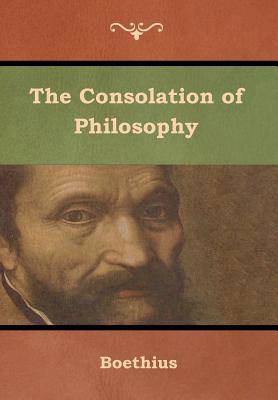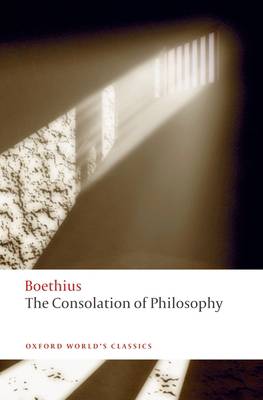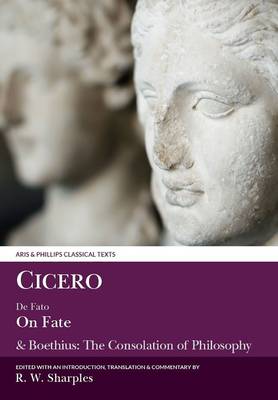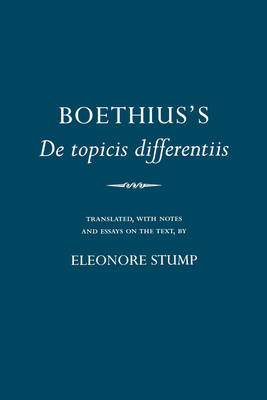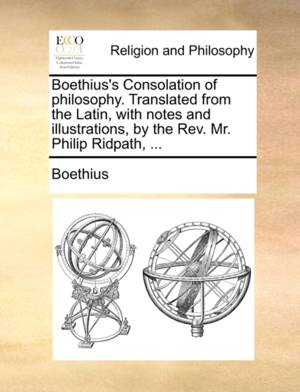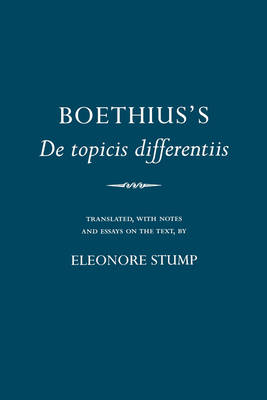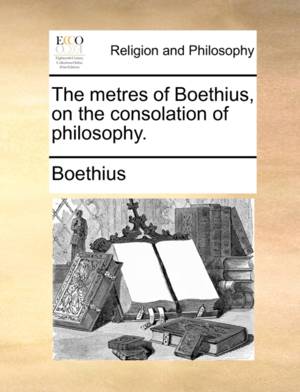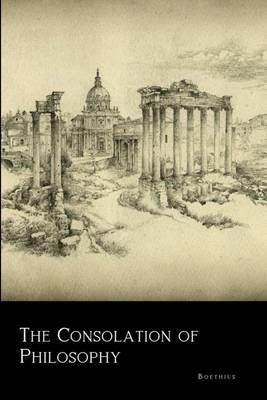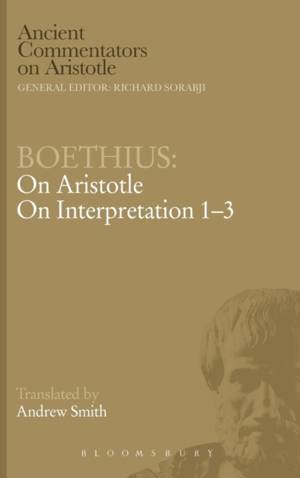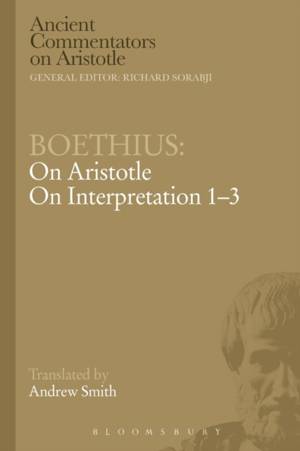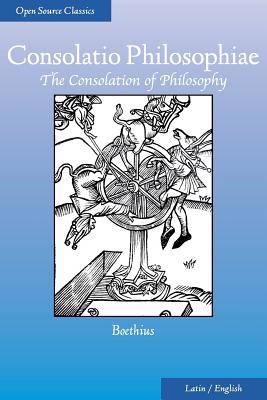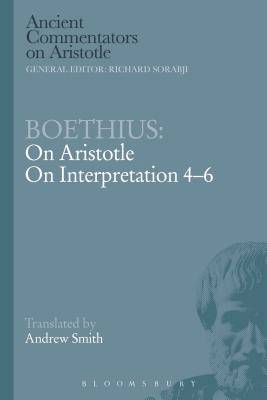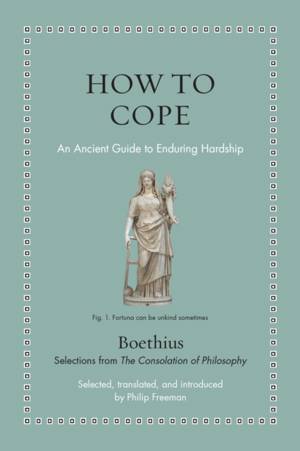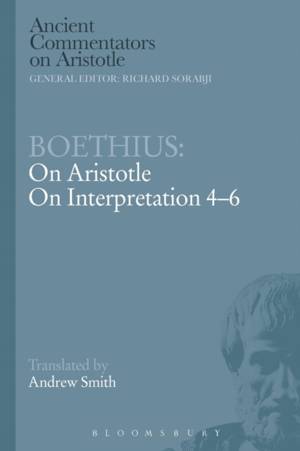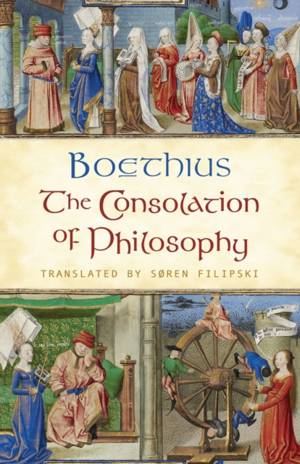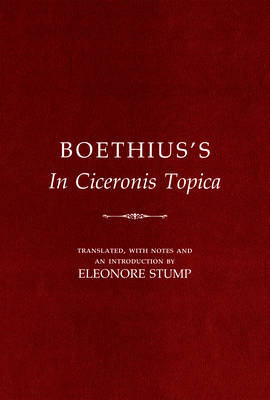
- Retrait gratuit dans votre magasin Club
- 7.000.000 titres dans notre catalogue
- Payer en toute sécurité
- Toujours un magasin près de chez vous
- Retrait gratuit dans votre magasin Club
- 7.000.0000 titres dans notre catalogue
- Payer en toute sécurité
- Toujours un magasin près de chez vous
Livres écrits par Boethius
-
The Consolation of Philosophy
Boethius
- Livre relié | Anglais
- Saint Anicius Manlius Severinus Boëthius, commonly called Boethius (477-524 AD), was a Roman senator, consul, magister officiorum, and philosopher of ... Savoir plus
23,95 €Livraison 1 à 2 semaines23,95 €Livraison 1 à 2 semaines -
The Consolation of Philosophy
Boethius, P G Walsh
- Livre broché | Anglais | Oxford World's Classics
- Boethius composed De Consolation Philosophiae in the sixth century A.D. while awaiting death by torture, condemned on a charge of plotting against Got... Savoir plus
13,95 €Livraison 1 à 2 semaines13,95 €Livraison 1 à 2 semaines -
Boethius's in Ciceronis Topica
Boethius
- Livre broché | Anglais
- In Ciceronis Topica and De topicis differentiis are Boethius's two treatises on Topics ( loci ). Together these two works present Boethius's theory of... Savoir plus
64,45 €Livraison 2 à 3 semaines64,45 €Livraison 2 à 3 semaines -
Cicero: On Fate
Cicero, Boethius
- Livre broché | Aris & Phillips Classical Texts
- Cicero and Boethius did more than anyone else to transmit the insights of Greek philosophy to the Latin culture of Western Europe which has played so ... Savoir plus
93,45 €Livraison 2 à 3 semaines93,45 €Livraison 2 à 3 semaines -
Boethius's "De Topicis Differentiis"
Boethius
- Livre relié | Anglais
- In Ciceronis Topica and De topicis differentiis are Boethius's two treatises on Topics (loci) . Together these two works present Boethius's theory of ... Savoir plus
101,95 €Livraison 2 à 3 semaines101,95 €Livraison 2 à 3 semaines -
Boethius's Consolation of philosophy. Translated from the Latin, with notes and illustrations, by the Rev. Mr. Philip Ridpath, ...
Boethius
- Livre broché | Anglais
- The 18th century was a wealth of knowledge, exploration and rapidly growing technology and expanding record-keeping made possible by advances in the p... Savoir plus
37,95 €Livraison 2 à 3 semaines37,95 €Livraison 2 à 3 semaines -
Boethius's de Topicis Differentiis
Boethius
- Livre broché | Anglais
- In Ciceronis Topica and De topicis differentiis are Boethius's two treatises on Topics (loci) . Together these two works present Boethius's theory of ... Savoir plus
64,45 €Livraison 2 à 3 semaines64,45 €Livraison 2 à 3 semaines -
The Metres of Boethius, on the Consolation of Philosophy.
Boethius
- Livre broché | Anglais
- The 18th century was a wealth of knowledge, exploration and rapidly growing technology and expanding record-keeping made possible by advances in the p... Savoir plus
36,45 €Livraison 2 à 3 semaines36,45 €Livraison 2 à 3 semaines -
The Consolation of Philosophy
Boethius
- Livre broché | Anglais
- Written while Boethius was in prison awaiting execution, The Consolation of Philosophy consists of a dialogue in alternating prose and verse between t... Savoir plus
17,95 €Livraison 2 à 3 semaines17,95 €Livraison 2 à 3 semaines -
The Consolation of Philosophy
Boethius, H. R. James
- Ebook | Anglais
- Discover the mystery of the world's moral government. Present in every educated person’s library, The Consolation of Philosophy relates a dialogue bet... Savoir plus
2,99 €Disponible immédiatement2,99 €Disponible immédiatement -
Boethius
Boethius
- Livre relié | Anglais | Ancient Commentators on Aristotle
- Boethius (c.480-c.525) wrote his highly influential second commentary on Aristotle's On Interpretation in Latin, but using the style of the Greek comm... Savoir plus
373,45 €Livraison 2 à 3 semaines373,45 €Livraison 2 à 3 semaines -
The five books of Anicius Manlius Torquatus Severinus Boethius, on the consolation of philosophy, translated into English. By Robert Duncan, A.M.
Boethius
- Livre broché | Anglais
- The 18th century was a wealth of knowledge, exploration and rapidly growing technology and expanding record-keeping made possible by advances in the p... Savoir plus
33,95 €Livraison 2 à 3 semaines33,95 €Livraison 2 à 3 semaines -
Boethius
Boethius
- Livre broché | Anglais | Ancient Commentators on Aristotle
- Boethius (c.480-c.525) wrote his highly influential second commentary on Aristotle's On Interpretation in Latin, but using the style of the Greek comm... Savoir plus
88,45 €Livraison 2 à 3 semaines88,45 €Livraison 2 à 3 semaines -
Consolatio Philosophiae
Boethius
- Livre broché | Anglais
- Consolatio Philosophiae is Boethius's conversation with Philosophy personified. Written while awaiting execution, he ponders the nature of morality, f... Savoir plus
17,45 €Livraison 1 à 4 semaines17,45 €Livraison 1 à 4 semaines -
Boethius
Boethius
- Livre relié | Anglais | Ancient Commentators on Aristotle
- Boethius (c. 480-c. 525) was a Christian philosopher and author of many translations and works of philosophy, most famously the Consolations of Philos... Savoir plus
373,45 €Livraison 2 à 3 semaines373,45 €Livraison 2 à 3 semaines -
How to Cope
Boethius
- Livre relié | Anglais | Ancient Wisdom for Modern Readers
- A vivid and accessible new translation of essential selections from Boethius's Consolation of Philosophy --a moving classic about facing life's worst ... Savoir plus
23,45 €Pré-commander, disponible à partir du 04-11-202523,45 €Pré-commander, disponible à partir du 04-11-2025 -
The Consolation of Philosophy
Boethius
- Livre broché | Anglais | Norton Critical Editions
- The Consolation of Philosophy occupies a central place in the history of Western thought. Its author, Anicius Manlius Severinus Boethius (ca. 476-526 ... Savoir plus
36,45 €Livraison 2 à 3 semaines36,45 €Livraison 2 à 3 semaines -
The Consolation of Philosophy
Boethius
- Livre broché | Anglais
- Born in the late 5th century AD, Boethius was a Roman statesman and philosopher who would come into the service of the Ostrogothic ruler of Italy, The... Savoir plus
12,45 €Livraison 2 à 3 semaines12,45 €Livraison 2 à 3 semaines -
Der Trost der Philosophie
Boethius
- Ebook | Allemand | Die Schriften der Kirchenväter
- Boethius' bekanntestes Werk ist der "Trost der Philosophie", (oder "Tröstungen der Philosophie"), das er während seiner Gefangenschaft schrieb - "das ... Savoir plus
7,99 €Disponible immédiatement7,99 €Disponible immédiatement -
Boethius
Boethius
- Livre broché | Anglais | Ancient Commentators on Aristotle
- Boethius (c. 480-c. 525) was a Christian philosopher and author of many translations and works of philosophy, most famously the Consolations of Philos... Savoir plus
88,45 €Livraison 2 à 3 semaines88,45 €Livraison 2 à 3 semaines -
The Theological Tractates and the Consolation of Philosophy
Boethius
- Livre broché | Anglais
- Boethius's "Consolation of Philosophy" is considered as one of the most important and influential works of medieval times. Written during Boethius's y... Savoir plus
12,95 €Livraison sous 1 à 4 semaines12,95 €Livraison sous 1 à 4 semaines -
The Consolation of Philosophy
Boethius
- Livre broché | Anglais
- One of the most beloved works of the Middle Ages, The Consolation of Philosophy ranks among the most deeply experienced and profoundly reasoned explor... Savoir plus
13,45 €Livraison 1 à 2 semaines13,45 €Livraison 1 à 2 semaines -
Boetii de Dacia tractatus De aeternitate mundi
Boethius
- Livre relié | Allemand | Quellen Und Studien Zur Geschichte der Philosophie | n° 4
- Keine ausführliche Beschreibung für "Boetii de Dacia tractatus De aeternitate mundi" verfügbar. Savoir plus
248,45 €Livraison 2 à 3 semaines248,45 €Livraison 2 à 3 semaines -
Boethius's in Ciceronis Topica
Boethius
- Livre relié | Anglais
- In Ciceronis Topica and De topicis differentiis are Boethius's two treatises on Topics ( loci ). Together these two works present Boethius's theory of... Savoir plus
101,95 €Livraison 2 à 3 semaines101,95 €Livraison 2 à 3 semaines





